Time is a funny thing. For as much as we rely on it for, well, everything — we still have a hard time grasping the concept of it. We all pay close attention to time, but what do we really know about it? Discover 7 interesting facts about time that will simply blow your mind.
IMAGINARY TIME
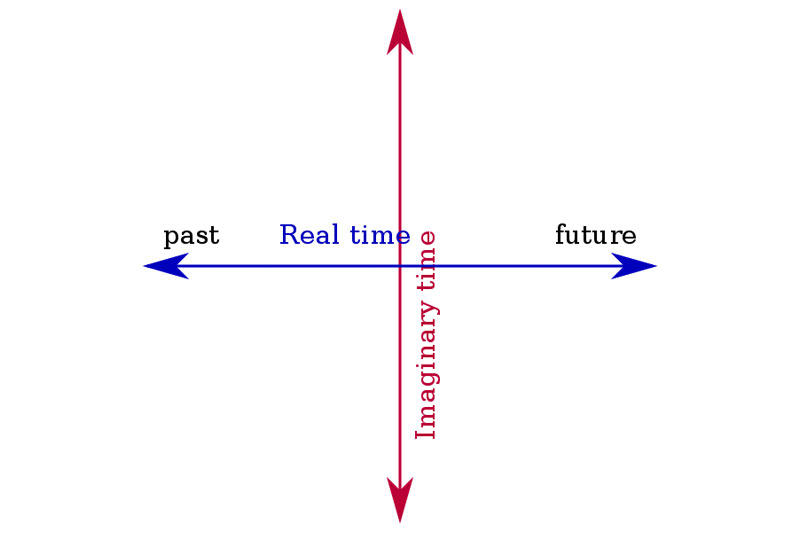
The concept of imaginary time was used by physicist Stephen Hawking, to convert the dimension of time into a space dimension. Imaginary time is a way of looking at the time dimension as if it was a dimension of space: you can move forward and backward along imaginary time, just like you can move right and left in space. As Hawking has said, “Imaginary time is like another direction in space.” This science fiction sounding concept, enables equations to work without the need for a singularity; a point of infinite density at the start of the Universe.
TIME TRAVEL AND THE GRANDFATHER PARADOX
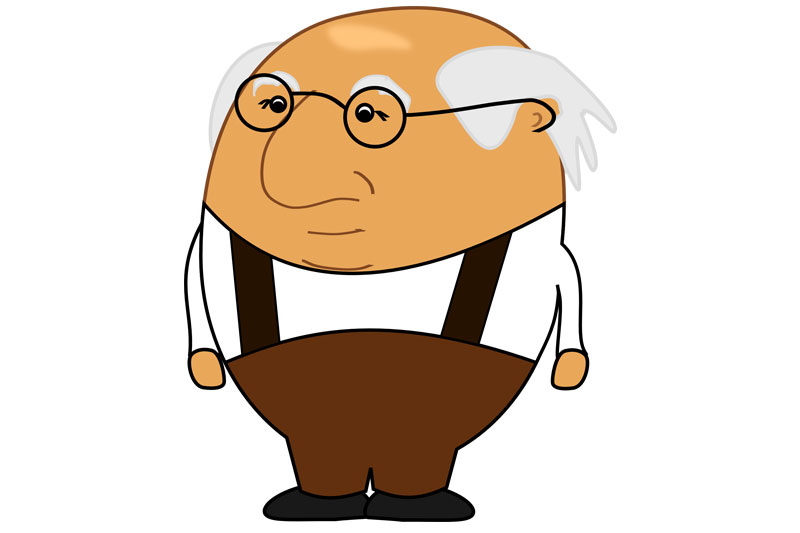
The grandfather paradox, is a hypothetical scenario which demonstrates that if time travel were possible and you went back in time and prevented your grandparents from meeting, you would not only prevent your own birth, but also your later time travel. This is the essence of the paradox. However, based on Einstein’s theory of general relativity, travelling back in time should be possible, as gravity is believed to be the warping of space-time by energy and matter.
So, in theory, a spinning black hole could produce a very powerful gravitational field and warp the fabric of existence so that space-time bends back on itself and creates a “closed time like curve,” which could enable time travel.
PERCEPTION OF TIME AND AGING
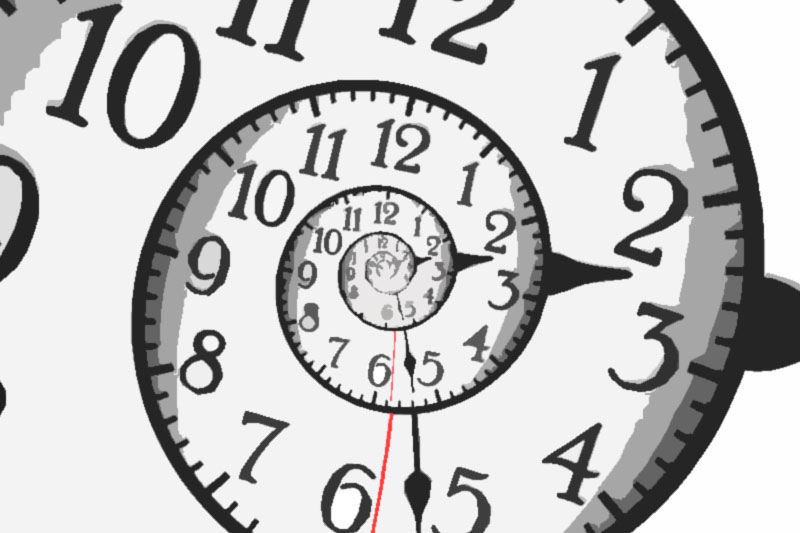
When we are children, time often seems to drag. The school year can seem endless and holidays seem to go on forever. As we age, however, our perception of time seems to speed up; this appears to be a common feeling across cultures and throughout time. Neuroscientist, David Eagleman, thinks that when we are young, we experience many novel things for the first time and our brains use more energy to record these new experiences. And this may be part of the reason that time appears to go slowly. There are, however, other theories about why time seems to pass faster as we get older. These include the possibility that our biological clock is involved and the experience of time pressure.
REVERSING THE EFFECTS OF TIME

Scientists have reversed the process of aging in old mice by targeting the mitochondria. Mitochondria are organelles that provide cellular energy, but as we age, the processes of the mitochondria appear to decline. The key, it seems, is to keep SIRT1 levels high. This can be achieved with calorie restriction which increases a molecule called NAD+, or, by taking a supplement called nicotinamide mono nucleotide.
However, at the moment, this substance is only available experimentally at an exorbitant cost; something like $1000-2000 per gram.
WHEN TIME SLOWS
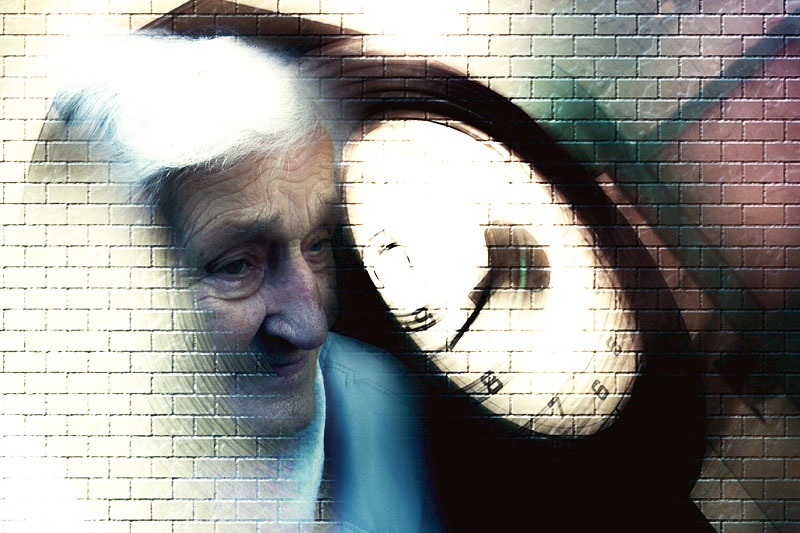
Have you ever had an experience of intense fear accompanied by the sensation that time was slowing down? Feeling that the happenings occurring around you are in slow motion, whilst your thoughts are strangely complex and rich, is not an uncommon experience during situations of intense fear or danger. And, when such experiences are brought to mind later, they can often be recalled in minute and intense detail. This “flashbulb memory effect,” is often accompanied by intense emotion as the brain’s amygdala is activated. It is not surprising that fear inducing and emotionally arousing events create such vivid memories with lots of detail; however, it is this hyperattention to detail, which appears to slow down time.
LOOKING BACK IN TIME

If you look at the sun, then you will be seeing it as it looked 8 minutes ago. This is because light travels at 300,000 km a second and it takes the light from the sun 8 minutes to travel to Earth. This means, that is impossible to see distant objects, as they appear in the present; if you look far out into space, then you will be seeing those objects as they were a long time ago. Proxima Centauri, is the closest star to Earth, however, if you look at this star, you are seeing it as it was 4.2 years ago. A star in the Milky Way is about 50,000 light years away; which means that if an alien was up there in the Milky Way now, he would be seeing Earth as it was 50,000 years ago. In theory, the further we look out into space, the further back in time we see. The nearest large galaxy to the Milky Way, is about 2 million light years away and when we look at it, we are seeing it as it was 2 million years ago. Now, just imagine if you could teleport over there and take a gander back at Earth?
THE ILLUSION OF TIME
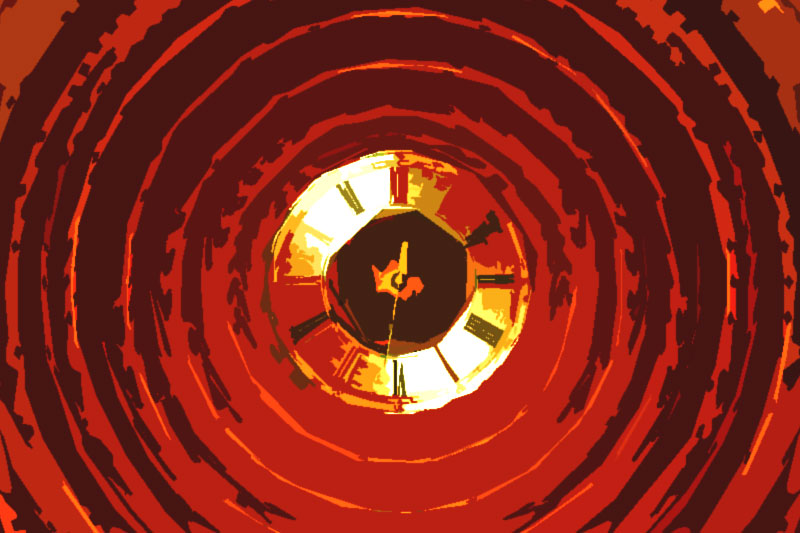
Physicists regard the sense that time “passes” or “flows” as an illusion. According to Albert Einstein’s theory of general relativity, time is just another dimension in space. Einstein called time the fourth dimension and noted that time is inseparable from space and so, in theory, traversable in either direction. For physicists, the past and the future are simply there. As Einstein said “For us physicists, the distinction between past, present and future is only an illusion, however persistent.”


